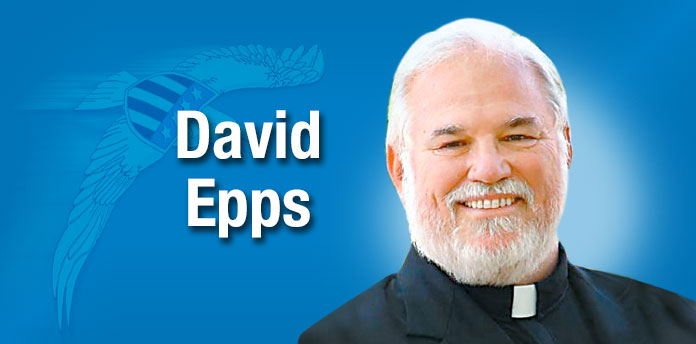In the New Testament book of Acts of the Apostles, we find this statement: “These fellows who have turned the world upside down have come here, too…” Acts 17:6. Of course, at the time, they had not turned the entire world upside down, but it must have seemed so to the communities that were being impacted at the time. And, while the early Christians were limited in how far they could travel, Jesus did instruct his followers to “go into all the world” and to teach and make disciples. And so, it has been for 2,000 years.
Following the torture and legalized murder of Jesus, his disciples were hiding in terror, were in despair, and were assuming that the grand adventure to change the world was at an end. But, on the following Sunday, word spread that Jesus had been resurrected from the dead. And, indeed, there were many witnesses, including all of the disciples (except the turncoat Judas who committed suicide) who would be with him over a period of some forty days.
The mission was reinforced to go into all the world and a movement that began small would, in fact, cover the entire planet in the years to come. Persecution drove some people from their homes, but this resulted in their faith being transplanted far and wide. Merchants, sailors, and other travelers added to the number that would serve as spokesmen and missionaries. Even the murder of Christians would result in people, observing how they died with faith and courage, being drawn to the teaching and life of Jesus.
The history of the Church (ekklesia, in Greek, meaning loosely, “those who are called out to gather together”) is not all positive. Critics are not hesitant to point to the failures, hypocrisies, and flaws of the Church and some of her prominent leaders through the centuries.
But, whenever humanity is involved, this should come as no surprise. The Bible is replete with the accounts of flawed individuals who were, despite everything, used to accomplish God’s divine purposes. Nevertheless, it is Jesus who said that he would build his Church, the failures of men and women notwithstanding.
So, what has happened in the years since the Apostles “turned the world upside down?” A great deal, as it turns out. There are currently around 2.5 BILLION Christians in the world today, finding a home in one of the 41,000 different expressions (or “denominations”) of that faith. This is just under one-third of the entire population of the Earth. In numbers alone, Christianity is the largest religion in all of human history.
The Christians faith has changed the culture in ways that most people take for granted such as the care of the poor and disadvantaged, hospitals, hospices, universities, art, music, architecture, child welfare, the elevation of the status of women, the sanctity of life, and on the list goes.
So, the person who commented that “These fellows who have turned the world upside down have come here, too…” was, it appears, an unlikely and unwitting prophet. The death of the Church and of Christianity has been predicted repeatedly through the years, but the predictions have always been wrong. Even in those countries where religion is frowned up and oppressed, the Church and the faith she represents is alive and well.
In the years prior to Mao, the Christian population of China was estimated at five million. Today, according to the Pew Research Center, that number stands at sixty-eight million or 5% of the population of the massive Communist country. Even in Cuba, our closest Communist neighbor, there are nearly seven million Christians who comprise some 65% of the population. In contrast, true atheists make up only 7% of the world’s population.
So, “those “fellows” and those that followed them have indeed “turned the world upside down.” Christianity is alive and well and continues to quietly and persistently “go into all the world and proclaim the Good News.”
After all the governments, institutions, and philosophies have passed from the scene, the Church will remain. She is, after all, a divine creation, and even if in some instances, she appears to be dead — well, there’s that thing about resurrection. Don’t ever count her out.
[David Epps is the Rector of the Cathedral of Christ the King (www.ctk.life). During the pandemic, the church is open at 10:00 a.m. on Sundays but is also live streaming at www.ctk.life. He is the bishop of the Diocese of the Mid-South (www.midsouthdiocese.life) He may contacted at [email protected].]












Leave a Comment
You must be logged in to post a comment.